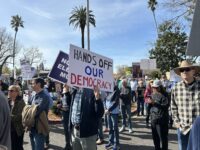The creation of financial wealth in our capitalistic system requires speculation. In this case, speculation is defined as the act of risking money through investment in the hope of a future profit. The idea of risk is critical, as speculation always requires risk. Making money without risk is not speculation, it’s called guaranteed income, and its profit is always on the lower side. Buying a FDIC insured bank CD paying .1 percent per year interest for example, is not speculation.
In speculating, the higher the reward, the higher the risk. A “junk” bond pays higher interest than a US Government-issued bond precisely because the risk of buying a “junk” bond is greater. The “junkier” the bond, the higher the interest, but the risk of default and losing the entire investment is greater, too. Speculation is gambling on outcomes.
In the case of land speculation, the same principles apply. Land is purchased with the expectation that it will increase in value and be able to be sold at a profit or developed in such a way as to produce a high profit. Another, less expensive but also riskier way to speculate on land, involves what’s called an “option.” An option is an agreement between a property owner and a potential buyer wherein the buyer makes a payment to the seller in order to “hold” the land and prevent it from being sold to a different buyer for a period of time. Options run for periods of time or until conditions agreed upon between buyer and seller have been satisfied.
Thus, in the example of the Sonoma Auto and Truck property at MacArthur and Broadway, an option has been purchased. In this specific case, the option has been bought by a former employee of Kessler Hotels, which previously explored developing an 80-room hotel on that site but, according to the current option holder, decided to forego their plan in light of Measure B to limit hotel sizes in Sonoma. The current option holder is now exploring development ideas for the parcel, and if he can satisfy the terms of his agreement with the property owner, will take possession of the property.
Often, options on land include agreements that certain “contingencies” must be met for the option holder to be required to make the land purchase. For example, an option agreement might contain provisions that development rights and permits be granted before the option holder must purchase the property. This type of provision sometimes produces the effect of a property “flip” wherein the purchaser, having secured the necessary development rights and permits, quickly sells the property to another party waiting in the wings.
Never really holding the property for long, the buyer holding an exercised option is simply making a profit on the time and effort required to bring the land into compliance with development regulations. The speculative aspect includes the time and money that must be spent in securing permits and entitlements. Sometimes such a process takes too long, is too expensive or meets too much opposition and the speculator loses whatever has been invested in the process.
There is a difference between pure speculation and a long-term investment. From a community standpoint, long-term investment provides continuity, commitment, and engagement which builds stronger positive engagement. Pure speculation, on the other hand, is all about making money, period.





Be First to Comment